Our Stories is a series where we share the profile of faculty, staff and students in our department. These are usually published in our social media channels under the series name Humans of Spanish & Portuguese + Latin American Studies.
Thanks for reading!
How does a bilingual mind work when it speaks a mixed language? What role do social factors such as identity or age play in the acquisition process? These are just a few of the questions Vanina Machado – a PhD candidate in our department – is trying to unveil in her doctoral work about prosodic variation in border bilinguals.
Originally from Uruguay, she found an early fascination with languages and understanding how a bilingual mind works. Noticing this interest, her mother brought to her attention the field of Linguistics. After teaching English as a Second Language in a school in Uruguay, Vanina knew that she would become a linguist. She completed her BA (Licenciatura) in Linguistics at the Universidad de la República in Montevideo, Uruguay. During her BA, she did research on English borrowings in Uruguayan Spanish, Guarani borrowings in old Spanish dictionaries of the River Plate (Rio de la Plata), and observation of digital literacy events and practices in remote / online teaching. After completing her degree, Vanina decided to focus on language acquisition and develop her research on Uruguayan-Brazilian border bilinguals.
She began laying her groundwork while completing a MA in Hispanic Linguistics at Western University (in Canada). With support from Prof. Yasaman Rafat – an alumna of our PhD program – Vanina explored language variation, second language acquisition and intonation transfer in speakers of Uruguayan Portuguese.
Vanina shared: “After experimenting with intonation during my MA, I was eager to continue my studies in Prosody, a new field within Linguistics with a lot of room for exploration. So, I decided to further my research through a PhD. I am really excited to contribute to the field by doing pioneering work on the speech variation in Uruguayan Spanish and Portuguese bilinguals who live in Rivera, an Uruguayan-Brazilian open border zone – a fascinating sociolinguistic context – by focusing on intonation, rhythm, and speech rate of these speakers. My findings will offer valuable information to the area of border linguistics and prosodic variation.”
When asked about her experience in our Department, Vanina was quick to answer: “Since my arrival at the University of Toronto, Prof. Laura Colantoni has been my role model. I admire deeply her work ethic, kindness, and professionalism. I am also lucky to count Prof. Anabela Rato as one of my mentors. I treasure her support, knowledge and invaluable advice. I appreciate the opportunity to teach courses in the Department, as this has allowed me to improve my teaching practice. Even though at the beginning it was challenging to balance my own studies and research with the teaching obligations, I now consider myself an experienced educator. I am proud of the person I have become, and I am grateful to my family and the Department for their support as I developed into a linguistics scholar.”


